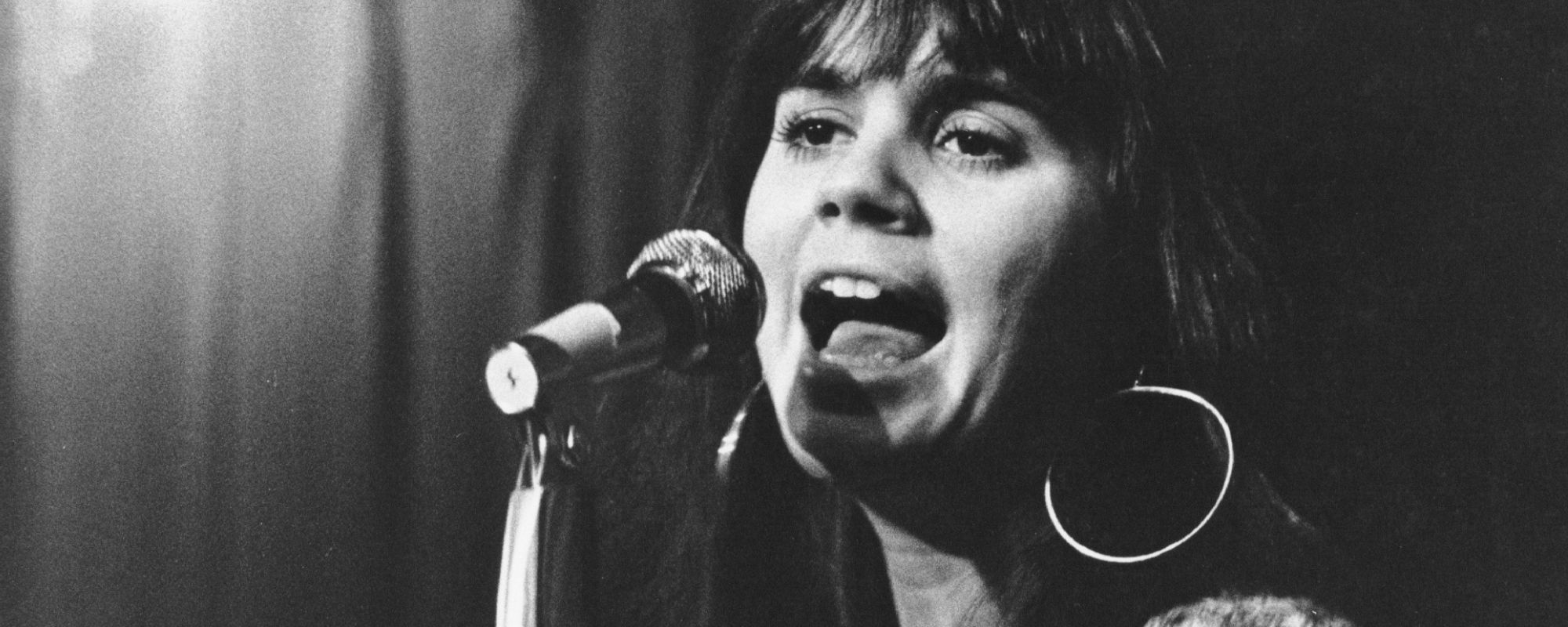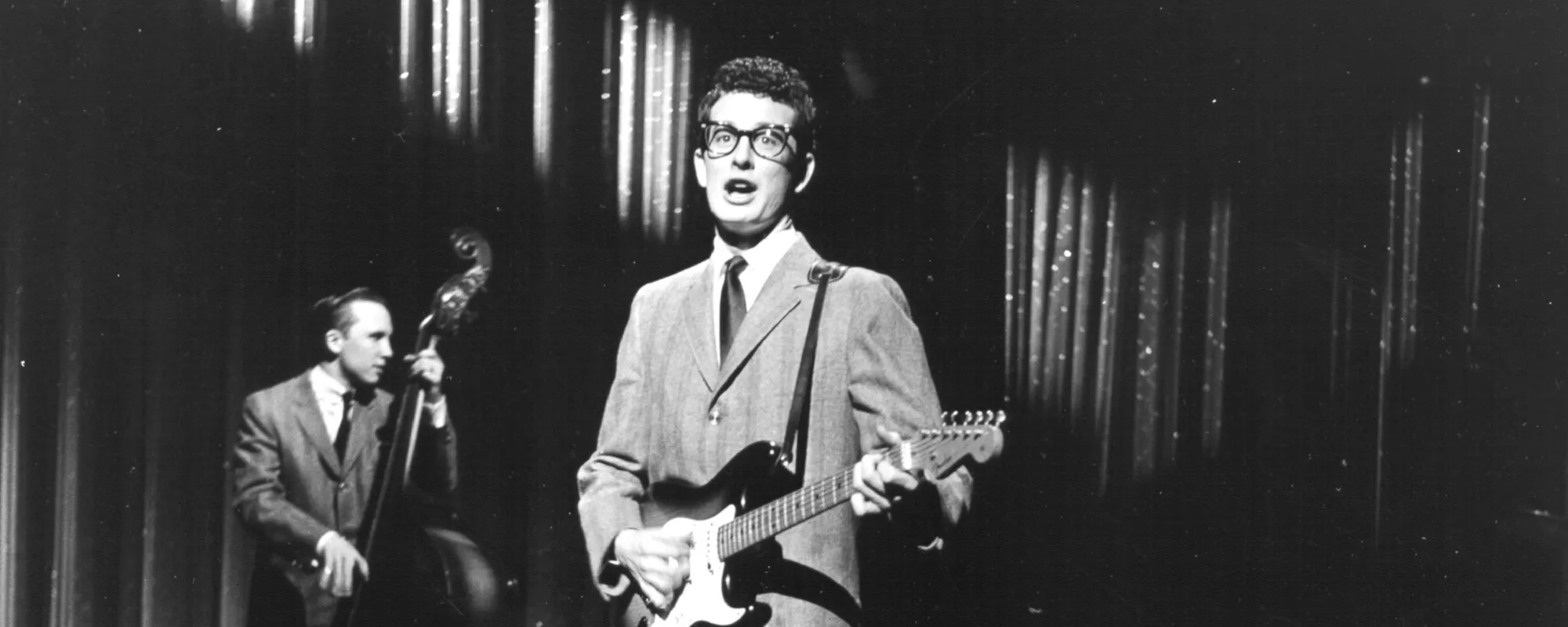Some albums will never quite be extricated from the circumstances surrounding the artists at the time they were making them. Bob Dylan‘s Slow Train Coming is just such an album. It just might be best-recorded and most expertly played album in Dylan’s illustrious career, but few people talk about that.
Videos by American Songwriter
Instead, the 1979 album will forever be linked to Bob Dylan’s sudden foray into Christianity, and the surprise that decision engendered in critics and fans around the world. How did it all go down? And how did Dylan choose to express his faith on Slow Train Coming? Let’s look back at one of the most controversial and memorable records of Dylan’s career.
The Faith Train Arrives
That Latin term annus horribilis might as well have been coined to describe Bob Dylan in 1978. His career was reeling, as his album Street-Legal and the worldwide tour to promote it engendered some of his poorest reviews in years. On a personal level, he was going through a divorce that turned nasty and costly in a hurry. As his tour would down, he was clearly a man in search of answers.
What happened next, as is often the case when trying to unpack Dylan’s history, is somewhat muddled. As Dylan told the story, he was at a particular low point on stage one night during the tour when someone tossed a silver cross onto the stage. Not long after that, he claimed that Jesus Christ came to him in a vision, which led to Dylan’s conversion. (Dylan was raised in the Jewish faith.)
But it’s also possible the change partially came from his dating several women around that time who were devout Christians. In any case, he began attending services and Bible classes provided a California-based ministry, which eventually conducted his baptism. A few of the songs that he sound-checked toward the end of the tour, including a menacing track called “Slow Train,” began incorporating his newfound beliefs.
Changing His Way of Thinking
Street-Legal is an underrated Dylan record that deserves your attention if you’ve dismissed it based on its harshest critics. But one of the reasons that it was lambasted when it was released was for murky sound quality, which somewhat reflected Dylan’s negligence in the recording and mixing process.
Perhaps because he so badly wanted the message of his new faith to be heard, he was determined not to make that same mistake again. Dylan arranged for the album to be recorded at the legendary Muscle Shoals studios in Alabama, with production coming from Jerry Wexler, whose work with artists like Aretha Franklin and Wilson Pickett at those studios was legendary.
Dylan also wanted the best players on the record. To that end, he hired Mark Knopfler, who had already risen to fame as a songwriter in his own right as leader of Dire Straits, to play lead guitar. If nothing else, the music on the album, which would be entitled Slow Train Coming upon its release in 1979, would sound as gritty and soulful as anything Dylan ever did, full of sultry grooves, Knopfler’s stinging guitar, and impassioned instrumental performances.
Bob’s Bully Pulpit
Another aspect of Slow Train Coming that stands out is the quality of Dylan’s vocals. Surely, there were many who doubted where he was coming from, or thought the religious material was a gimmick to sell records. But Dylan singing with such force and fervor at times, and at other times with such touching vulnerability, seems to indicate a guy who truly believed in what he was singing.
It’s fair to criticize Dylan for the occasional moments within the songs where it seems like he’s castigating everyone who doesn’t believe in the same way he does. But, in reality, those moments are few and far between on Slow Train Coming. (The next Dylan album, Saved, is guilty of this flaw much more often.) For the most part, these are songs about the joy and wonder he has found in the faith.
“I Believe in You” and “When He Returns” feature Dylan singing tenderly, almost as if he’s about to break down into tears, about his revelation. The horn-filled urgency of “Precious Angel” is undeniably stirring. There’s even room for playfulness on the kid’s song “Man Gave Names to All the Animals.”
While the title track is indeed fueled by anger, it is expressed with some of Dylan’s most bitingly eloquent wordplay. His anger is directed more at those governments and organizations in the world whose callousness and greed should be an affront to all faiths. Meanwhile, “Gotta Serve Somebody” proved a brilliant choice as first single, as Dylan used winking humor as a way to introduce people to his proselytizing.
The Legacy of Slow Train Coming
When Dylan began touring behind Slow Train Coming, he really stirred up his critics. He refused to play any of his old, secular songs, and he would spend time between songs giving protracted speeches to audience members to promote his beliefs. Nonetheless, the performances were often stunning.
His “Born Again” period (a term, it should be noted, that Dylan disliked) only lasted about 2 1/2 albums or so. (Shot of Love in ’81 is split almost down the middle between secular and religious material). Even after all these years, that stretch of his career is still polarizing. But it produced one undeniably great album in Slow Train Coming, with lyrics that preached to the choir and music that could move even the staunchest skeptic.
When you purchase through links on our site, we may earn an affiliate commission.
Photo by Michael Ochs Archives/Getty Images









Leave a Reply
Only members can comment. Become a member. Already a member? Log in.